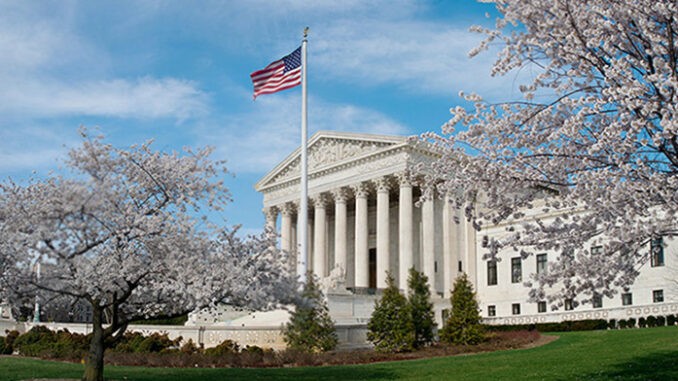
On Wednesday, attorneys representing 11 Arizona Republicans in a federal election lawsuit filed a motion to consolidate the case with three others currently before the U.S. Supreme Court in order to have the claims heard in an “expedited fashion” so that the Court can render a decision on or before Jan. 5.
“Each of the cases was brought by Republican presidential electors (from Michigan, Georgia, Arizona, and Wisconsin, respectively) who cast votes on December 14, 2020, for President Trump with the intention of those Trump votes being counted in the Joint Session of Congress scheduled for January 6, 2021,” Kleinhendler wrote to the Clerk of the U.S. Supreme Court.
The Arizona case names Gov. Doug Ducey and Secretary of State Katie Hobbs as defendants, and seeks to de-certify former Vice President Joe Biden’s 10,457 vote win over Trump. It went to the U.S. Supreme Court after U.S. District Judge Diane Humetewa dismissed the case Dec. 9, ruling the Republican Presidential electors did not have standing to undertake an election challenge, and that the plaintiffs’ claims of “fraud and illegality” had not been supported by “credible evidence.”
RELATED ARTICLE: Pressure Heats Up On Maricopa County Supervisors In Election Subpoena Dispute
“[Arizona] Petitioners and others like them seeking to expose the massive, coordinated inter-state election fraud that occurred in the 2020 General Election have been almost uniformly dismissed as ‘conspiracy theorists’ or worse by Democrat politicians and activists, and attacked or censored by their allies in the mainstream media and social media platforms,” according to the emergency petition to the U.S. Supreme Court. “The rampant lawlessness witnessed in Arizona was part of a larger pattern of illegal conduct seen in several other states, in particular, Georgia, Michigan, Pennsylvania, and Wisconsin.”
The motion to consolidate four election cases came one day after attorneys for the Trump campaign asked the Justices to void all election results from the State of Wisconsin. According to court filings, Trump contends more than 28,000 votes were cast by people who allegedly abused the state’s absentee voting law by receiving and voting an absentee ballot without providing identification.
In Wisconsin, registered voters can claim to be “indefinitely confined,” something many chose to do earlier in the year for the primary election due to COVID-19. Earlier this month the Wisconsin Supreme Court ruled voters, not election officials or government employees, should decide for themselves whether or not they are indefinitely confined due to age, disability, or infirmity.
“The plain language of (state law) requires that each elector make an individual assessment to determine whether he or she qualifies as indefinitely confined or disabled for an indefinite period,” according to an opinion authored by Chief Justice Patience Roggensack. “A county clerk may not ‘declare’ that any elector is indefinitely confined due to a pandemic.”
Trump’s election challenge in Wisconsin also alleges nearly 6,000 absentee ballots were counted despite “incomplete and altered ballot envelopes” in violation of state law and that more than 17,000 early ballots should not have been counted as they were collected by hand at Democrat-sponsored events..
